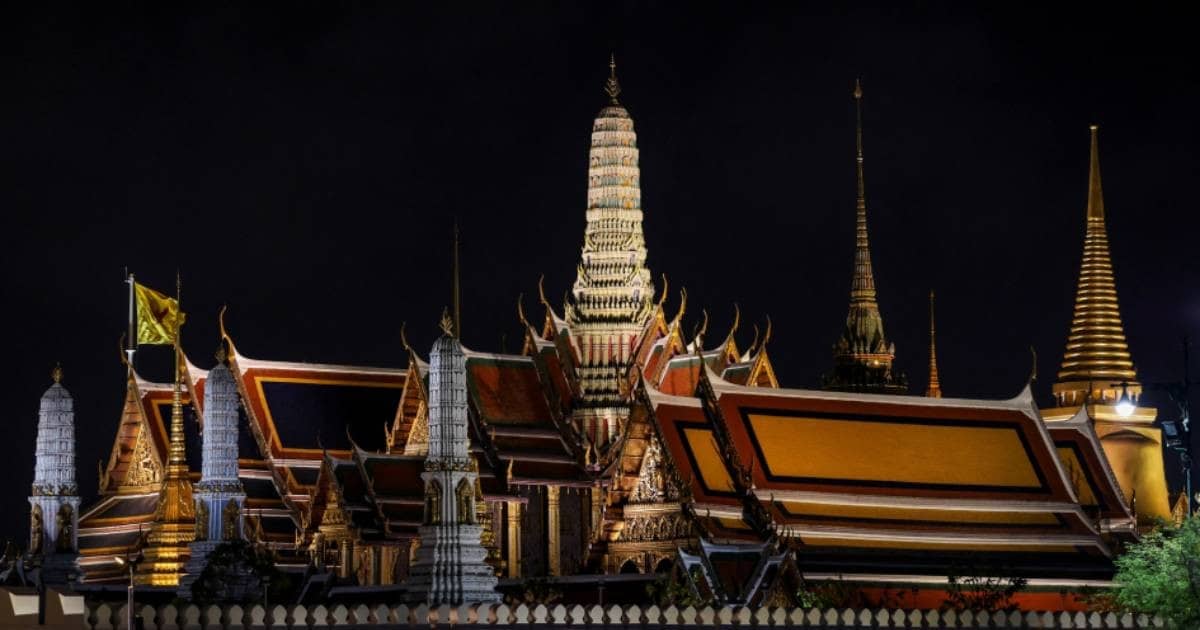The recent case of an American academic being charged under Thailand’s strict laws protecting the Thai Monarchy has sparked international attention. The individual was accused of insulting the Thai Monarchy a serious offense under the country’s lèse-majesté laws. After a brief detention the court granted bail allowing the academic temporary freedom while the legal process continues. This incident highlights the delicate balance between free speech and the deep cultural respect for the Thai Monarchy. BestPrimeNews
Understanding Thailand’s Lèse-Majesté Laws
Thailand has some of the world’s toughest laws when it comes to protecting the Thai Monarchy. Known as Article 112 of the Thai Criminal Code the lèse-majesté law makes it illegal to defame insult or threaten the king queen heir or regent. Violations can lead to severe penalties including lengthy prison sentences. The Thai Monarchy holds a sacred place in the nation’s identity and these laws reflect the cultural and political significance of the institution.
The case of the American academic is not isolated. Over the years several foreigners and locals have faced legal action under these laws. The Thai Monarchy is deeply revered by many citizens and public criticism is often met with strong backlash. However international observers sometimes view these laws as overly restrictive especially in cases involving foreign nationals who may not fully grasp the cultural context.
The Case of the American Academic
The American scholar whose identity has been widely reported in international media was detained after allegedly making critical remarks about the Thai Monarchy. The exact nature of the comments has not been fully disclosed but they were deemed severe enough to warrant legal action. After being held for questioning the academic was granted bail a decision that has brought some relief to supporters and human rights advocates.
Bail in lèse-majesté cases is not always guaranteed. The fact that it was granted in this instance suggests the court may have considered factors such as the individual’s foreign status or lack of prior offenses. However the case is far from over. If convicted the academic could face a significant prison sentence a scenario that would likely draw further international criticism.
International Reactions and Diplomatic Implications
The arrest of a foreign academic has drawn attention from human rights organizations and foreign governments. Many Western countries have laws protecting free speech and cases like this often lead to diplomatic tensions. The Thai Monarchy remains a sensitive topic and Thailand has consistently defended its laws as necessary for national stability and cultural preservation.
Some argue that the enforcement of lèse-majesté laws has become more stringent in recent years. Critics claim these laws are sometimes used to silence political dissent rather than just protect the dignity of the Thai Monarchy. Supporters however insist that the laws are vital for maintaining respect for the country’s most revered institution.
The Cultural Significance of the Thai Monarchy
To understand why cases like this generate such strong reactions one must appreciate the role of the Thai Monarchy in society. The institution is not just a political symbol but also a spiritual and cultural cornerstone. Many Thai citizens view the monarchy as a unifying force and any perceived attack on it is seen as an attack on the nation itself.
The current king Maha Vajiralongkorn along with the late King Bhumibol Adulyadej before him commands deep loyalty. Public displays of reverence for the Thai Monarchy are common from portraits in homes to grand ceremonies. This cultural backdrop explains why laws protecting the monarchy are so fiercely upheld.
Legal Process and What Comes Next
Now that the American academic has been released on bail the next steps involve court hearings and legal arguments. The prosecution will present evidence while the defense will likely challenge the charges on grounds such as freedom of expression or lack of malicious intent. Given the high-profile nature of the case the proceedings will be closely watched both in Thailand and abroad.
Legal experts note that foreign defendants in lèse-majesté cases sometimes receive different treatment compared to locals. While some are deported others face full trials. The outcome of this case could set a precedent for how similar situations are handled in the future.
Balancing Free Speech and Cultural Respect
This case raises important questions about the balance between free speech and cultural respect. While many countries protect their leaders from defamation few have laws as strict as Thailand’s. The Thai Monarchy’s unique position means that international standards of free speech often clash with local legal frameworks.
Human rights groups continue to call for reforms arguing that the current laws are too harsh. However any changes seem unlikely in the near future given the monarchy’s central role in Thai society. For now cases like this one will remain a point of contention between Thailand and the global community.
Conclusion
The release of the American academic on bail is just the beginning of a complex legal battle. The case underscores the challenges of navigating Thailand’s lèse-majesté laws especially for foreigners. The Thai Monarchy remains a deeply respected institution and any perceived insults are treated with utmost seriousness.
As the world watches how this case unfolds it serves as a reminder of the delicate intersection between law culture and free speech. Whether this incident will lead to broader discussions about legal reform remains to be seen. For now the focus remains on the ongoing judicial process and what it means for the future of similar cases involving the Thai Monarchy. BestPrimeNews



